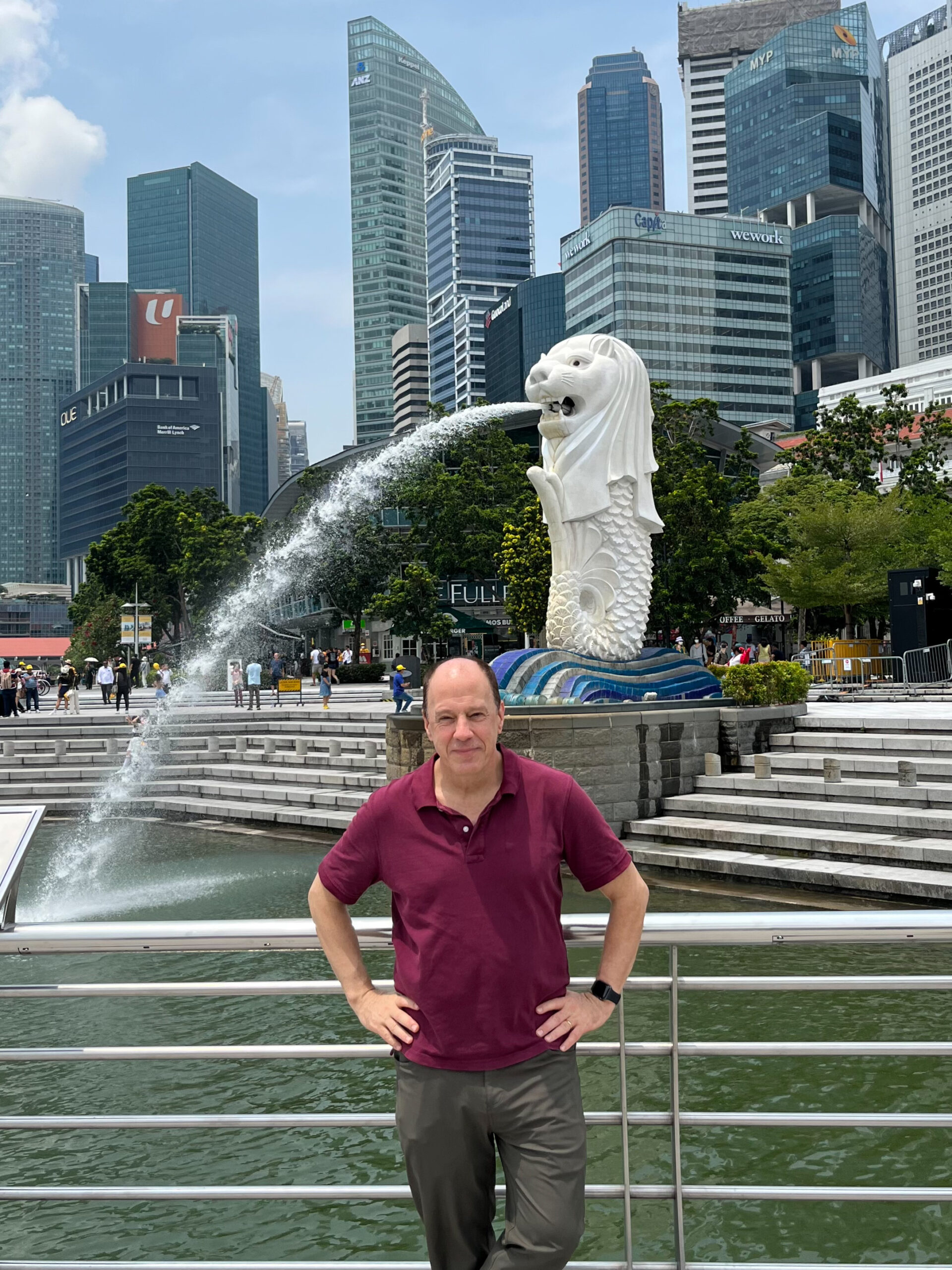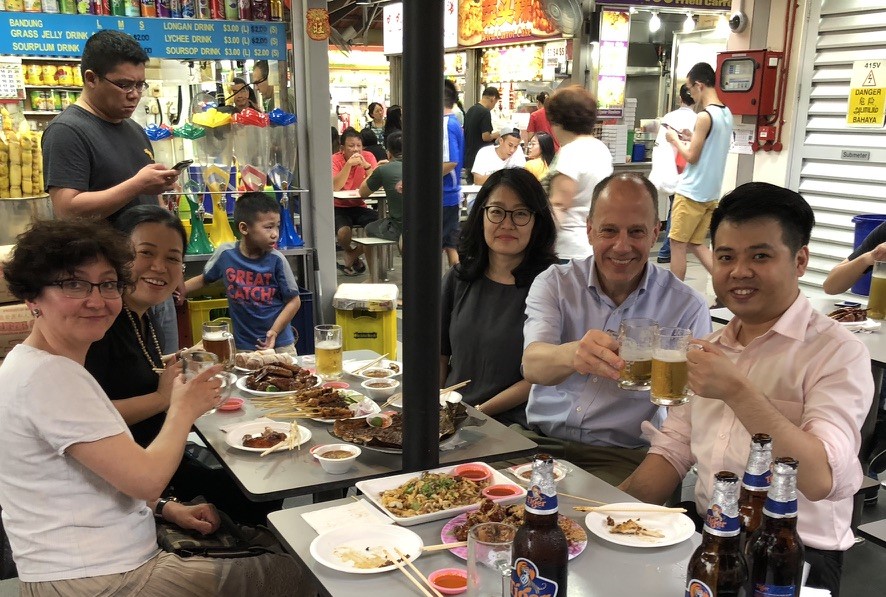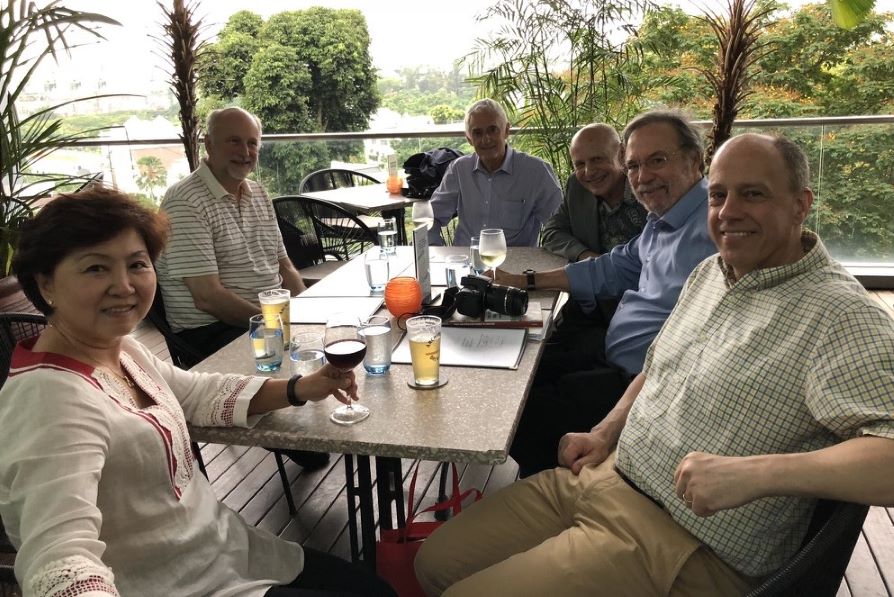#HumansofCFPR - Blog 6
An Inadvertent Scholar: Professor James Raymo's Journey from Osaka to Demography



| Published on 12 April 2024
Even though I grew up on a university campus where my father worked as a photography professor, I never had much interest in a research-focused career. Even as I approached the end of college, the concept of a career wasn't really at the front of my mind. Instead, what I really wanted was to travel. As my graduation approached, my main focus was finding some way to earn the money I needed to travel.
My solution was to go to Japan, a global economic powerhouse at the time. I was hired as an English “conversation” instructor teaching company employees in and around Osaka. My plan was for this to be a temporary stop with the goal of saving as much as possible for extended travels. However, once I arrived and started to settle into a routine, I realized that I loved living in Japan and my short-term, instrumental plans morphed into a four-year stay in Osaka and Kobe. During this period, I not only developed some proficiency in Japanese, but also married and came to see Japan as a kind of second home.
Returning to the U.S. after four years, I still had little clarity about a career path. I knew that I wanted to do something related to Japan, but my experience teaching English did not really provide much in the way of specific, marketable skills. Wondering what might be next, I applied on a bit of whim for a Ministry of Education Fellowship to go back to Japan for graduate research. Fortunately, I received the fellowship and returned to Japan to enter a graduate program in economics at Osaka City University. It didn’t take too long to figure out that I found research hugely rewarding and enjoyable.
It was during this time as a graduate student that I found my interest in demography. I was living in Osaka, a massive, vibrant city that also had a lot of quiet corners, including the neighborhoods I lived in and where my university was located. In these places, I saw few children, no pregnant women, and no parents pushing baby strollers, but I did see a lot of older people. These observations and lived experience mapped onto what I was reading about population aging, low fertility, and broader demographic changes taking place in Japan. This intersection of daily life and research is the basis of my interest in studying the causes and consequences of Japan’s population aging.
At the time I was in graduate school in Osaka – about 30 years ago – newspapers and media were already prominently discussing the unfolding demographic changes and contemplating their implications for the future. This strikes me as somewhat ironic in light of the recent sense of panic about low fertility and the government’s allocation of substantial funds to support family formation. These issues now being discussed as do-or-die existential challenges were well-documented and widely discussed in the media decades ago.
My development as a scholar led me to understand that living in the country you study is essential. For example, it's one thing for me to read about Singapore and to understand population aging and low fertility in Singapore. But because I have never lived there, I could never feel confident writing about it. I don't ever want to write about places without first-hand knowledge which is why the work I have done on places like Korea and China is always in collaboration with experts on those countries. Of course, I understand that I am, in a sense, an outsider in Japan as well but feel that the many years I have lived there give me a solid basis for doing informed research on what is happening there.
While my career path has been relatively smooth and I have benefited hugely from the support of mentors and colleagues, one challenge is the very US-centric focus of sociology in the U.S. I am grateful that the departments that I have worked in have been very supportive of international research. However, U.S. journals almost always require some additional justification for studies that focus on other countries, like Japan, which can be frustrating at times. However, I feel like I have come to understand this “double standard” quite well and find it fun and rewarding to overcome the challenge. Overall, I am lucky and thankful to have a supportive family and colleagues who helped me along the way in my professional journey.
Beyond work, one of the things I enjoy is reading mystery and crime fiction novels. I love indulging in Swedish, Icelandic, and Japanese detective novels. My favorite author is Seichō Matsumoto, a giant in the world of crime fiction in Japan whose stories are as much about social issues as they are about solving crimes. My favorite book in this genre is by a different author (Miyuki Miyabe) and is called Kasha (火車) – I recommend to all and believe that there may be an English translation available.
I am not sure what my favorite phrase or motto in Japan might be. Perhaps it is "nantoka naru" (何とかなる) meaning that it will work out or will be fine. I believe that it is a waste of time to worry about things and that we should instead prioritize having fun and being happy. We are paid to do research and should appreciate the luxury of that life.
Reflecting on my career and life, I think that I would stress to my younger self the significance of paying more attention in school. My very lackadaisical approach to college resulted in many missed opportunities and I regret that. I would also stress to my younger self the importance of learning more languages. For many reasons, I wish that I knew more languages and could navigate the world better. I have friends who know 6 or 7 languages which is something that I deeply respect but am also quite jealous of. Additionally, I would encourage my younger self to travel even more to better understand and appreciate the world. Despite my lack of focus and lack of ambition as a young adult, I think that everything has worked out reasonably well.
- Professor James Raymo, Department of Sociology, Henry Wendt III '55 Professor of East Asian Studies, Princeton University

